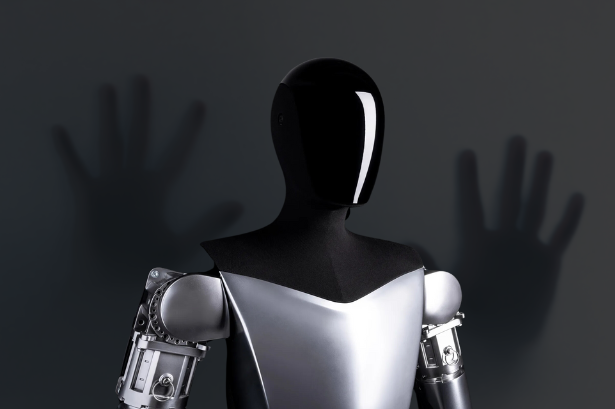
Scary Technology of 2024: What’s Evolving and Why It Feels Unsettling
31 Oct, 20245 mins
In 2024, technology has propelled us into a new era that is simultaneously exhilarating and frightening. Automation, robots, and artificial intelligence developments are transforming society faster than ever before. Some of these innovations present serious existential and ethical questions, while many others provide previously unheard-of levels of convenience and inventiveness. Here's a detailed look at some of the 2024 technologies that could be the most "scary" and why we might find them unsettling.
1. Humanoid Robots: The Rise of Hyper-Realistic Machines
The development of humanoid robots has accelerated in recent years, and 2024 marks the year they’ve become eerily lifelike. With advanced AI systems controlling lifelike facial expressions, gestures, and voice, these robots are designed to interact with humans in a way that’s almost indistinguishable from real people. Companies like Tesla and Boston Dynamics have been leading the charge, with their robots now used in customer service, healthcare, and even entertainment.
What’s unsettling? The "uncanny valley" effect—where these robots look just human enough to be familiar but still unnatural—can evoke feelings of discomfort or even fear. As these machines start blending into human environments, there are real concerns about job displacement, personal security, and the potential for misuse. Imagine a robot indistinguishable from a human, with access to AI databases capable of learning and manipulating based on observed human behaviours.
2. Robot Taxis: Autonomous Driving on the Edge of Control
Robot taxis are no longer science fiction—they’re real and rolling on the streets of major cities in 2024. Companies like Waymo, Cruise, and Tesla have deployed fleets of fully autonomous vehicles capable of ferrying passengers without a driver behind the wheel. These self-driving cars use advanced sensors, AI algorithms, and real-time data processing to navigate traffic and respond to road conditions.
While the convenience is undeniable, the potential for disaster is alarming. The fear here is the loss of human control in high-risk environments like driving. What happens when the algorithms make the wrong call, or worse when they’re hacked? The idea of being in a high-speed vehicle with no human intervention available during emergencies is unsettling, and despite rigorous testing, autonomous vehicles still raise questions about liability, safety, and ethical decision-making in life-or-death situations.
3. Generative AI: Creativity Without the Creator
Generative AI, like OpenAI’s GPT-4, Midjourney, and others, have taken content creation to a whole new level. These systems can generate human-like text, art, music, and even software code with minimal human input. In 2024, we are seeing generative AI used in everything from marketing campaigns and news articles to entire film scripts and art exhibitions.
This creativity without a creator raises major concerns. One is the erosion of human creativity itself—when machines can produce content in seconds, what happens to the value of human-generated art and writing? Additionally, generative AI can be used for disinformation, for example, Donald Trump recently posted an image on X falsely depicting Taylor Swift and her fans endorsing his campaign for president.
These AI systems are getting so good at mimicking human language and thought that they can easily generate fake news, deepfakes and misinformation campaigns at a scale never before imagined.
What’s terrifying? The ease with which AI-generated content could be weaponised to manipulate public opinion, erode trust in institutions, or create a future where discerning what’s real and what’s fake becomes nearly impossible.
4. Speech Mimicking AI: Voices That Aren’t Real
In 2024, AI systems can replicate human voices with remarkable accuracy. Speech synthesis technology has evolved to the point where a machine can mimic a person’s voice, tone, and cadence after listening to just a few samples. This means we can now produce voiceovers, phone conversations, or even entire speeches without the original speaker ever saying a word. Services like ElevenLabs and Voicemod are already offering speech cloning tools to consumers and businesses.
This technology has tremendous positive potential in entertainment, accessibility, and virtual reality, but it also opens a Pandora’s box of concerns. The dark side? The rise of AI voice scams. Scammers can clone the voices of loved ones or business leaders and use these fake voices for fraud, impersonation, or defamation. The idea that someone could use your voice in ways you never intended is a chilling thought, as it erodes trust in digital communication.
5. AI Surveillance and Privacy Invasion: Always Being Watched
AI-driven surveillance has reached unprecedented levels in 2024. Governments and corporations alike are leveraging AI to monitor vast amounts of data in real-time, including video footage, biometric data, social media activity, and even emotions through facial recognition software. China, for example, has perfected AI surveillance in cities, with systems capable of tracking millions of people and flagging potential "threats" based on behaviour patterns.
The fear here is clear: loss of privacy. AI systems can now analyse your every move, track your activities and even predict your behaviour. What’s more, these systems are being integrated into wearable technology and smart devices, leading to a future where every aspect of your life can be monitored and analysed by algorithms. It’s not just Big Brother watching anymore—it’s a web of AI systems with limitless memory and processing power.
6. Human-AI Symbiosis: Blurring the Line Between Man and Machine
In 2024, the fusion between humans and machines is becoming a reality. Neurotechnology, like Elon Musk’s Neuralink, promises to connect our brains directly to computers, allowing humans to control devices with thought alone or even "upload" knowledge directly to their minds. The concept is eerily similar to the Black Mirror episode “The Entire History of You”, which is set in a reality in which people are able to record and rewatch all their memories- a capability that ultimately does not end well. While this technology is still in its infancy, its rapid development raises significant ethical and philosophical questions.
The scariest part? The loss of individuality. When our minds are directly linked to machines, who controls that interface? Could thoughts be hacked, manipulated, or influenced? This symbiotic relationship could also lead to a profound societal divide between those who have access to these enhancements and those who don’t, creating a new class of augmented humans with cognitive and physical abilities far beyond the average person.
Conclusion: Should We Fear the Future?
The rapid pace of technological innovation in 2024 feels exhilarating, but it’s also pushing us into unchartered territory. Humanoid robots, generative AI, speech-mimicking technology and advanced surveillance systems all promise to reshape the way we live and work, but they also carry with them significant risks. The real challenge will be ensuring that we strike the right balance between embracing these innovations and maintaining control over them before they control us.
The real question we must confront isn’t just whether we can build these technologies, but whether we should. And if we do, how can we ensure they are developed and used responsibly? As we look ahead, 2024 is filled with potential, but it also presents challenges that will push the boundaries of what it means to be human.

